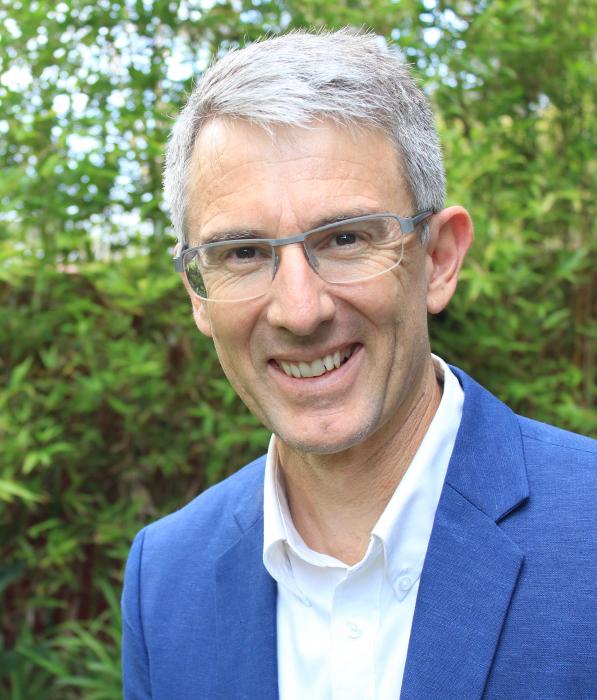Chris Buntine, Northrop’s new sustainability lead in Melbourne, on rethinking building design in this ‘decade to deliver’ on climate

Melbourne has long been a hotbed of sustainability innovation and market leadership when it comes to its built environment. So when Northrop expanded into the Melbourne market several years ago, the leadership team knew that finding the right person to lead their sustainability team would be instrumental in guiding and supporting their client’s aspirations. With the recent appointment of Chris Buntine as their Melbourne Sustainability Manager, Northrop is keen to apply its sustainable engineering expertise to the Victorian property industry which is increasingly embracing sustainability as mission critical in a time of climate emergency.
Chris has led sustainability on many prominent Melbourne building and precinct projects and believes that by thinking differently about the way we design and construct buildings we can unlock enormous potential for social and economic value creation.
“When you view sustainability as a cost, it fosters a mindset of minimal compliance, but if you view it instead as a means of creating an uplift in value, through the design of buildings which are higher performing, healthier, resilient and contribute positively to ecological systems, then the opportunities are limitless”.
Chris points to examples like the recently completed Burwood Brickworks Shopping Centre, considered as one of the greenest shopping centres in the world, where the developer, Frasers Property, has used the principles of net positive and regenerative design to drive tenant interest and support a thriving retail environment.
To California and back
Initially trained as a civil engineer at Melbourne University, Chris' interest in sustainability was first piqued when he began working as a geotechnical engineer for the mining industry.
"I saw first hand the important economic benefits of mineral mining but at the same time the serious consequences of environmental destruction - ecological and indigenous community health were being left out of the business model.”
“It really got me thinking that there must be ways that business, people and planet could thrive at the same time. It was only many years later that I came to more fully understand this ‘regenerative’ way of doing things”.
In the mid-90s Chris headed to the Los Angeles for further study, initially completing a Masters in Urban Planning focused on environmental policy, followed a few years later by an MBA and a Masters of Building Science.
At the time California was a global leader in tackling urban air quality and energy efficiency. Chris worked firstly for an advanced transportation consortium commercialising zero emission vehicle technologies such as electric vehicles, and later for a large electric utility which was investing in energy efficiency as a cost-effective alternative to generation.
“California really opened my eyes to the value of bold environmental leadership as an economic engine for business and government,” says Chris.
"They would set these stretch targets before they had all the answers - like sales of electric vehicles or the construction of net zero energy buildings, but then they would use smart regulation and technology innovation to drive rapid market adoption. I came away inspired by the power of thinking sustainably to transform the way industries and businesses can work.”
New opportunities at Northrop
Fast forward to 2020 and Chris has spent the last ten years as a key figure in Melbourne’s sustainable buildings scene, consulting to government, institutional and commercial clients on opportunities for positive impact.
Chris joined Northrop in February 2020, having made the decision to seek out an engineering consulting firm that took the challenges of climate change seriously. Northrop became a signatory to “Australian Engineers Declare Climate and Biodiversity Emergency” in late 2019.
"Northrop came across as an established and respected firm with the right multi-disciplinary capability, supportive culture and commitment to sustainable outcomes and to be a leader in this ‘decade to deliver’ on climate.”
“Many of Northrop’s clients have made public commitments to delivering sustainable outcomes that benefit their business but also maintain their social license to operate by giving back to the communities they serve. This presents a compelling opportunity for building engineers to bring new thinking to the table on how projects can move towards outcomes like energy positive, water balanced, zero waste, circular materials, ecological biodiversity, climate resilience and wellbeing.”
Thinking regeneratively
Chris is one of the founding members of the Australian Engineers Declare movement, which asks engineering companies, and individual engineers to declare publicly that we're in a climate and biodiversity emergency and ask what this means for engineers. He is also a facilitator of the Melbourne Living Building Collaborative. Both roles reflect his commitment to regenerative development.
"We have to reduce carbon emissions by 40 to 60% in the next decade, and that means a lot of new buildings need to be net-zero or very close to net-zero, in terms of the building's operation and the embodied energy of the materials," says Chris.
“But we can’t respond to the climate emergency without also considering a much broader set of issues such as social equity in our communities, the impacts of our supply chain around the world, and the capacity of our built environment to renew, adapt and evolve over time.
“One of the key lessons we are learning during this time of COVID-19 is that our economy, the resilience of our communities, our health and the natural world are all intimately connected. At Northrop we are on a mission to embed sustainability into all that we do, so we can help position clients and our projects for the opportunities and challenges ahead.”
